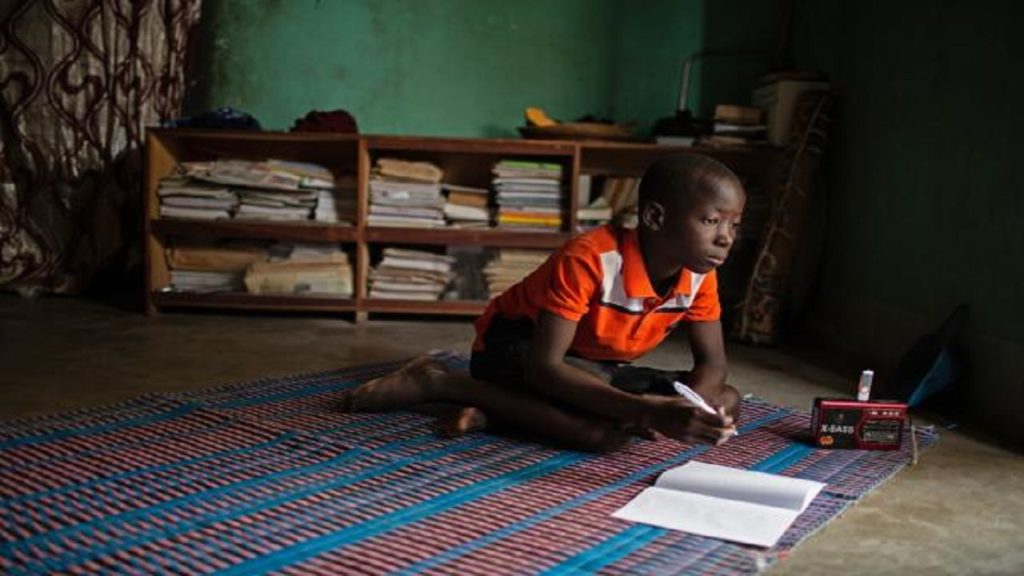A Paper Presented by Miss Nancy Emesiani at Opinions From Africa Research Department (#ResearchwithPet)- An Online Conference on Parental Factor Affecting a Child’s Academic Performance on July 18, 2020.
Host- Jidechukwu Angela Nwabueze
Introduction
Education is a complex human endeavor ultimately aimed at enhancing students’ cognitive, civic, and social learning and development. The National Policy on Nigerian Education (2014) sees education as a dynamic instrument per excellence for effecting national development and a potent means for ensuring the welfare of the people and equalization of chances.
Thus, the main purpose of education is to educate individuals within society, to prepare and qualify them for work in economy as well as to integrate people into society and teach values and morals of society.
Education, which remains the vehicle for human development must start from the family front where the child lives (Nwabueze, 2017). That is to say that the family is the fundamental and important structure of the society that has an important role in one’s life and academics.
It has the responsibility of teaching children as its contribution. Thus, the best predictor of student success is the extent to which families encourage learning at home and involve themselves in their child’s education (Okante, 2008).
Embed from Getty ImagesAccordingly, parents play an immense and significant role in the academic performance of their children. When parents are engaged in their children’s school lives, students have the home support and knowledge they need to not only finish their assignments, but also develop a lifelong love of learning
From the above, it could be rightly argued that there are certain factors in the family that affects the academic performance of a child. Among these factors are parenting styles, parents’ level of education, their occupation, socio-economic status and socializing facilities in the home (Adesehinwa, 2013).
For the purpose of our discussion, the concentration would be on parental level of education. The educational level of parent is a powerful factor influencing children’s academic success. It has been established that generally, the educational level of parents is greatly connected to the educational Attainment of their children.
Parents play an immense and significant role in the academic performance of their children. Educated parents would have increased emphasis on educational excellence (Akeem, 2014). Educated parents are equipped by virtue of their education to take cognizance of the fact that parent- student- school- community relationship is important in order to promote educational attainment and academic achievement of their children and so they make the partnership a priority (Okantey, 2008).
Accordingly, the level of educational assistance that students received once they leave the school environment tells a lot about their parents’ level of education. Parental level of education refers to how well parents are well educated or not (Muruwei, 2011).
The educational background of the parents can be expressed in their frequent use of English Language as a medium of communication in the home. This will help in laying a good foundation for students’ confidence in speaking good English in the public.
Eluwe (2017) found that parents’ father’s educational attainment link positively to parenting and adolescents’ academic performance. Highly-educated parents provide more or higher-quality teaching input for their children whereas a child with less-educated parents does not have access to alternative skilled teaching inputs
Children with educated parents are more likely to:
- Earn higher grades or test scores
- Graduate and attend post-secondary education
- Develop self-confidence and motivation in the classroom
- Have better social skills and classroom behavior
They are also less likely to:
- Have low self-esteem
- Need redirection in the classroom
- Develop behavioral issues
Non-educated or lower educated parents leans towards authoritarian parenting which is a restrictive, punishment-heavy and parent centered in which parents make their children follow their directions with little to no explanation or feedback .
Children with non-educated or lower educated parents are more likely to performed poorly ,drop out of high school, have low self-esteem and develop behavioral issues such as Attention Deficit Hyperactivity Disorder (ADHD), Oppositional Defiant Disorder (ODD), anxiety disorder, depression, bipolar disorder, learning disorders, and conduct disorders.

They are also less likely to:
- Earn higher grades or test scores
- Graduate from high school and attend post-secondary education
- Develop self-confidence and motivation in the classroom
- Have better social skills and classroom behavior
Educated parents are typically more aware of the long-term benefits of acquiring a degree, and thus they share this information with their children. The higher the degree the parents have obtained, the greater the support the student will have from their parents to complete a similar academic goal.
Parents who have no education or lower education, on the other hand, tend to have less direct knowledge of the University education. Thus, some of these parents may prefer that their children work rather than attain higher education. One study showed that most dropouts’ parents (70% of the mothers and 80% of the fathers) never finished secondary school.
Possible Solutions to the Negative Influence of a Child’s Parental Level of Education on their Academic Perormance
School administrator and teachers should:
- Provide opportunities for parents to connect with the school.
- Share your expectations openly with parents, and ask them to do the same
- Connect with parents’ in-person as much as possible. Use emails, texts, or calls to keep parents up-to-date.
- Address common challenges that inhibit parent engagement like scheduling conflicts or an intimidating atmosphere.
- Encourage parent engagement. It’s one of the best ways to create a positive learning environment for every student.
References
Adesehinwa, O. A. (2013). Effects of family type: Monogamy or polygamy on students’ academic achievement in Nigeria. International Journal of Psychology and Counseling, 5(7), 153-156.
Akeem, A. R. (2014).Impact of some demographic variables on academic needs achievement among undergraduate students of the two Nigerian universities: Counseling implication. Unpublished masters’ thesis, Department of Guidance and Counseling, Ahmadu Bello University, Zaria.
Eluwe, J. (2017). Perceived influence of students socio-demographic factors on their academic achievement in English language. Unpublished Undergraduate Project, Department of Educational Foundation, Nnamdi Azikiwe University, Awka.
Federal Republic of Nigeria (2013). National policy on education. Lagos: NERDC Press.
Muruwei, M. (2011). Parents’ level of education and senior secondary students’ academic performance in English language in Bayelsa State, Nigeria. JORIND, 9(2), 302 – 305
Nwabueze, A.J. (2017). Problems of teaching drama in literature-in-English in secondary schools in Awka South L.G.A of Anambra State. Unpublished Undergraduate Project, Department of Educational Foundations, Nnamdi Azikiwe University, Awka.



1 comment
[…] ResearchwithPet: Parental Level of Education as a Parental Factor Affecting a Child’s Academic Per… […]